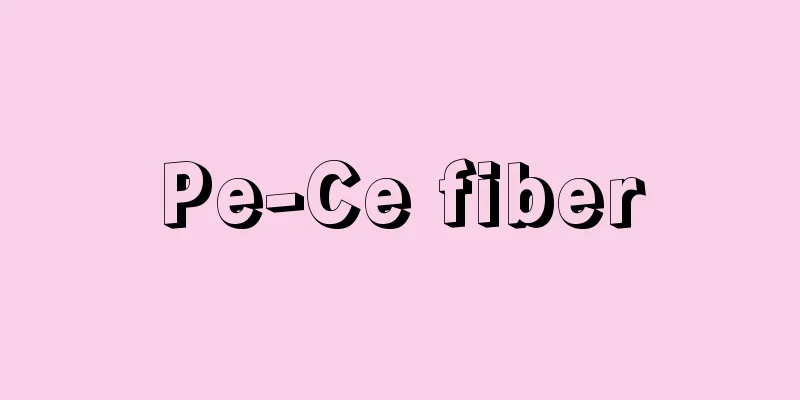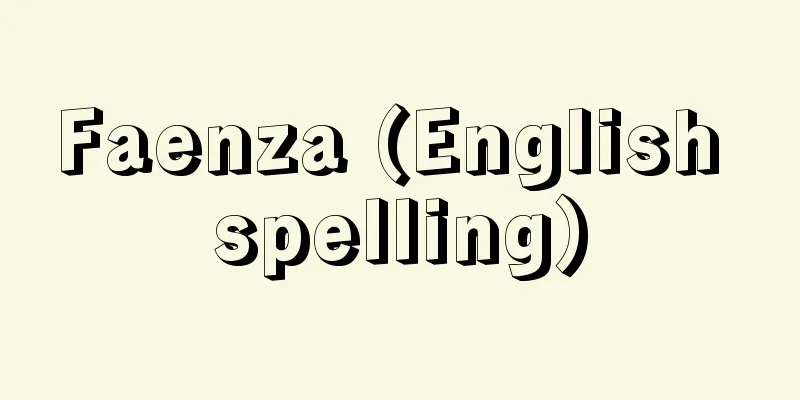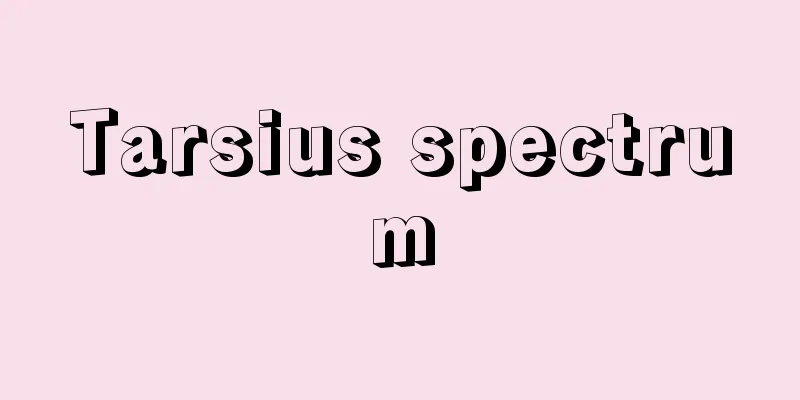Pe-Ce fiber

|
Chlorinated polyvinyl chloride fiber created by IG Farben in Germany in 1939. The chlorine content of polyvinyl chloride is 56.8%. This is further reacted with chlorine to increase the chlorine content to 64%, making it an acetone-soluble polymer that can be spun into fibers. It was used for filter cloth, waterproof cloth, fire-resistant clothing, etc., but is no longer produced. [Uriu Toshiyuki] Source: Heibonsha World Encyclopedia, 2nd Edition Information |
|
1939年にドイツのイーゲー・ファルベン社でつくられた塩素化ポリ塩化ビニル繊維。ポリ塩化ビニルの塩素含有率は56.8%である。これをさらに塩素と反応させて,塩素含有率64%まで高め,アセトン可溶のポリマーとし,紡糸した。ろ布,防水布,耐火服などに使用されたが,現在は生産されていない。【瓜生 敏之】
出典 株式会社平凡社世界大百科事典 第2版について 情報 |
Recommend
Thomas phosphate (Thomas phosphate)
A by-product of the Thomas process steelmaking pro...
Gray fox (Gray fox)
A mammal of the carnivora family Canidae, with a b...
Bran potato (true potato) - Shinjo
It is made by adding grated yam and other ingredie...
Enjoji Shrine
…He was called Shinjaku Hoshinno, and devoted him...
Multiple personality
…Personality is essentially a unity, but when tha...
Chikuwa (fish cake) - Chikuwa
A food made by spreading fish paste on a thick bam...
Samukawa Nyudo Notes
A rakugo story. Author unknown. Completed in 1613 ...
Yin-yuan Long-qi (English spelling)
[Birth] Wanli 20 (1592).11.4. Fuzhou, Fuqing [Died...
Przemyśl (English spelling)
A city in the Podkarpackie Voivodeship in southeas...
Normandy Invasion
On June 6, 1944, towards the end of World War II,...
Pseudocolus schellenbergiae (English spelling) Pseudocolusschellenbergiae
...A species similar to the basket mushroom, with...
Lower tone - Geon
It is one of the melodic forms of Buddhist music, ...
English - English
It is a language belonging to the West Germanic b...
Gold inlaid sword
…These white ink paintings are deeply connected t...
Adjustable hook (adjustable hook)
This is a hook that allows you to freely adjust th...





![Ichikawa [City] - Ichikawa](/upload/images/67caec426e002.webp)



